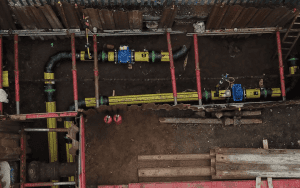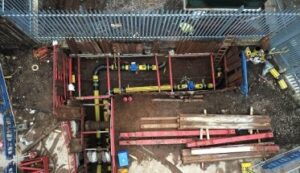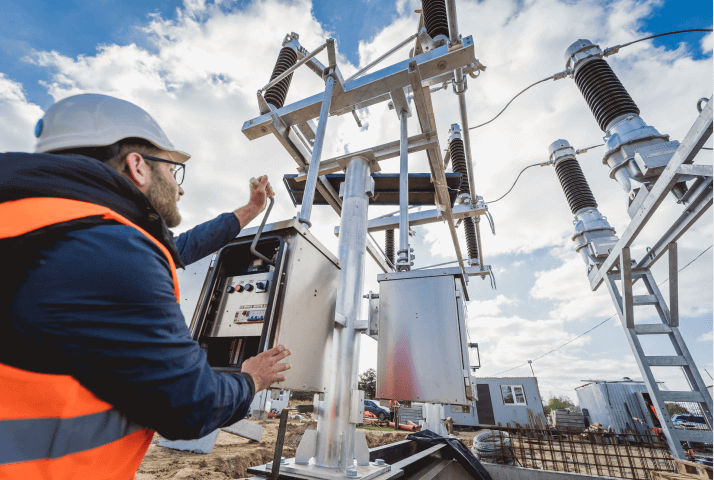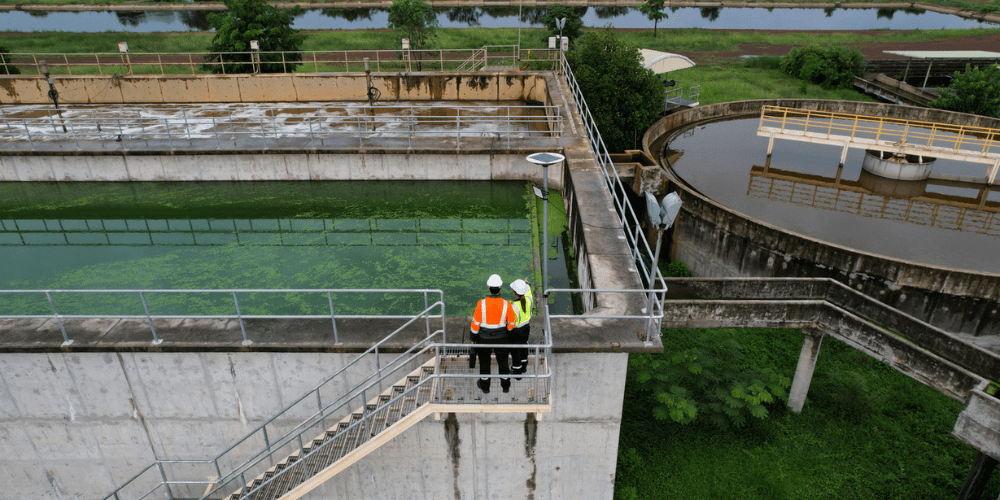At Jason Rowley Ltd, we often work with gas engineers, supervisors, and site teams who want to stay compliant and safe while working on the gas network.
One of the most common questions we’ve received recently concerns SCO NRO training and whether it will be mandatory in 2025.
To give you a clear answer, we’ve pulled together everything you need to know about what NRO stands for, who it applies to, and what the expectations are moving forward.
SCO NRO stands for Safe Control of Operations, Non-Routine Operations. It’s part of the wider SCO scheme designed to ensure that people working on the gas network understand how to do their jobs safely and competently.
Non-routine operations are those tasks that don’t fall under standard day-to-day activities. They’re usually higher risk, more complex, or out of the ordinary in some way.
That’s why there’s a separate module for them. SCO NRO training focuses specifically on how to plan, authorise, and carry out these kinds of jobs safely.
Regulatory Framework Behind NRO Requirements
The Energy & Utility Skills Register (EUSR) manages the whole SCO scheme, including NRO.
The current requirements are shaped around the IGEM GL/6 standard, an industry guide that outlines best practices for gas operations. Back in 2021, a new edition of this guide (Edition 3) was released, which updated the structure and content of SCO training modules.
This included changes to NRO training, making it more in line with current risks and expectations on site.
Under this framework, certain SCO modules are mandatory depending on your role and the type of work you’re doing.
The NRO module is no exception. If your job includes involvement in non-routine operations, like complex isolations, tie-ins, commissioning, or any work that doesn’t follow a repeatable pattern, then yes, you need to hold current NRO registration.
It’s not optional if your responsibilities include these kinds of tasks. The training ensures these operations are planned and executed safely, with full awareness of the hazards involved.

Who Must Undertake NRO Training
There’s sometimes confusion around who exactly needs to take NRO training. The simplest way to look at it is to think about whether you’re going to be involved in non-routine operations and whether you’ll be required to follow or authorise the specific SCO procedures that apply.
Typically, this training is required for Competent Persons and Authorising Engineers who carry out or oversee these higher-risk tasks.
If you’re working under someone else’s control but still involved in executing the job, you may also need it. It depends on your level of responsibility.
NRO training isn’t just about ticking a box; it’s about making sure that everyone involved in a non-standard operation knows how to manage risk and follow the correct procedures.
That means understanding everything from permit systems to emergency planning, and how to work safely in situations where standard procedures don’t apply.
Prerequisites and Pathway to NRO
You can’t just jump straight into NRO training without going through the proper route. To take the NRO module, you’ll need to have completed both SCO Core (Module 1) and Permit to Work (Module 2).
These modules give you the foundation of understanding for how the wider SCO scheme works, how permits are used, and what’s expected when planning or working on gas infrastructure.
Once you’ve done those two, you’re eligible to take the NRO module. The idea is to build your understanding step by step. For those renewing, it’s the same path. You’ll need to keep Core and PtW up to date before renewing NRO.
These layers ensure that each module builds on the previous one, reinforcing key safety messages and responsibilities.
Renewal Obligations for 2025
Following the 2021 update to GL/6, the way renewals work changed as well. If your NRO registration lapses, you can’t just renew it on its own; you’ll need to complete Core and PtW again as part of the full scheme.
That’s why it’s so important to stay on top of your renewal dates. With 2025 well underway, this means that anyone with an upcoming NRO expiry or those whose cards have lapsed already must follow the current renewal route under the updated guidelines.
This isn’t just an administrative task; it’s part of a larger effort across the industry to ensure that everyone working under SCO is properly trained and prepared.
Non-routine operations can have serious consequences if something goes wrong, so the rules around training and renewal are there for a reason.
Is NRO Mandatory in 2025?
Let’s get to the big question: Yes, SCO NRO training will be mandatory in 2025 for anyone involved in relevant non-routine operations.
This applies across the gas industry in Great Britain and is a requirement that comes directly from the national SCO framework, which is maintained by EUSR and developed in accordance with IGEM GL/6.
If your role involves planning or conducting high-risk, non-standard work, having a valid NRO card isn’t just a nice-to-have; it’s a necessity.
We know that training requirements can seem confusing, especially when they change every few years, but the rule is simple: if you’re doing non-routine work, you must have current NRO training and registration.
It’s not just about following protocol; it’s about keeping yourself, your team, and the network safe.

Consequences of Not Holding NRO
If you’re involved in non-routine work and don’t have up-to-date NRO training, the consequences can be significant. You could be restricted from working on certain sites, especially those managed by major gas companies that strictly enforce SCO compliance.
You might also be putting your company at risk if something goes wrong, and the investigation reveals that the correct training wasn’t in place.
Not only does it open the door to health and safety breaches, but it can also affect your professional standing and ability to win or maintain contracts.
There’s also the issue of EUSR registration. If your card has expired and you haven’t renewed in accordance with the current scheme, your NRO qualification will no longer be valid.
That means you will have to complete all the necessary modules again from the start, which costs more time and money than keeping it current.
Staying Compliant: What to Do Next
So, if you think NRO applies to you, the next step is simple: check your current EUSR registration. Make sure your Core, PtW, and NRO modules are still valid, and if anything’s due for renewal in 2025, get it booked in sooner rather than later.
The earlier you act, the easier it is to keep things running smoothly without interruption to your work.
It’s also worth keeping an eye on industry updates. The GL/6 guidance evolves over time, and staying informed helps ensure your training and practices stay aligned. Whether you’re working for a contractor or a major utility, compliance is a shared responsibility, and it starts with knowing where you stand.
Book Your SCO NRO Training With Jason Rowley Today!
SCO NRO training isn’t optional if you’re doing non-routine operations; it’s a mandatory requirement under the 2025 standards.
The updated GL/6 guidance and EUSR framework make it clear that those involved in complex gas tasks need to be properly trained, registered, and regularly renewed. It’s not about red tape, it’s about safety, competence, and professional standards across the gas network.
If your card is coming up for renewal, don’t delay. Stay compliant, stay safe, and keep moving forward.



